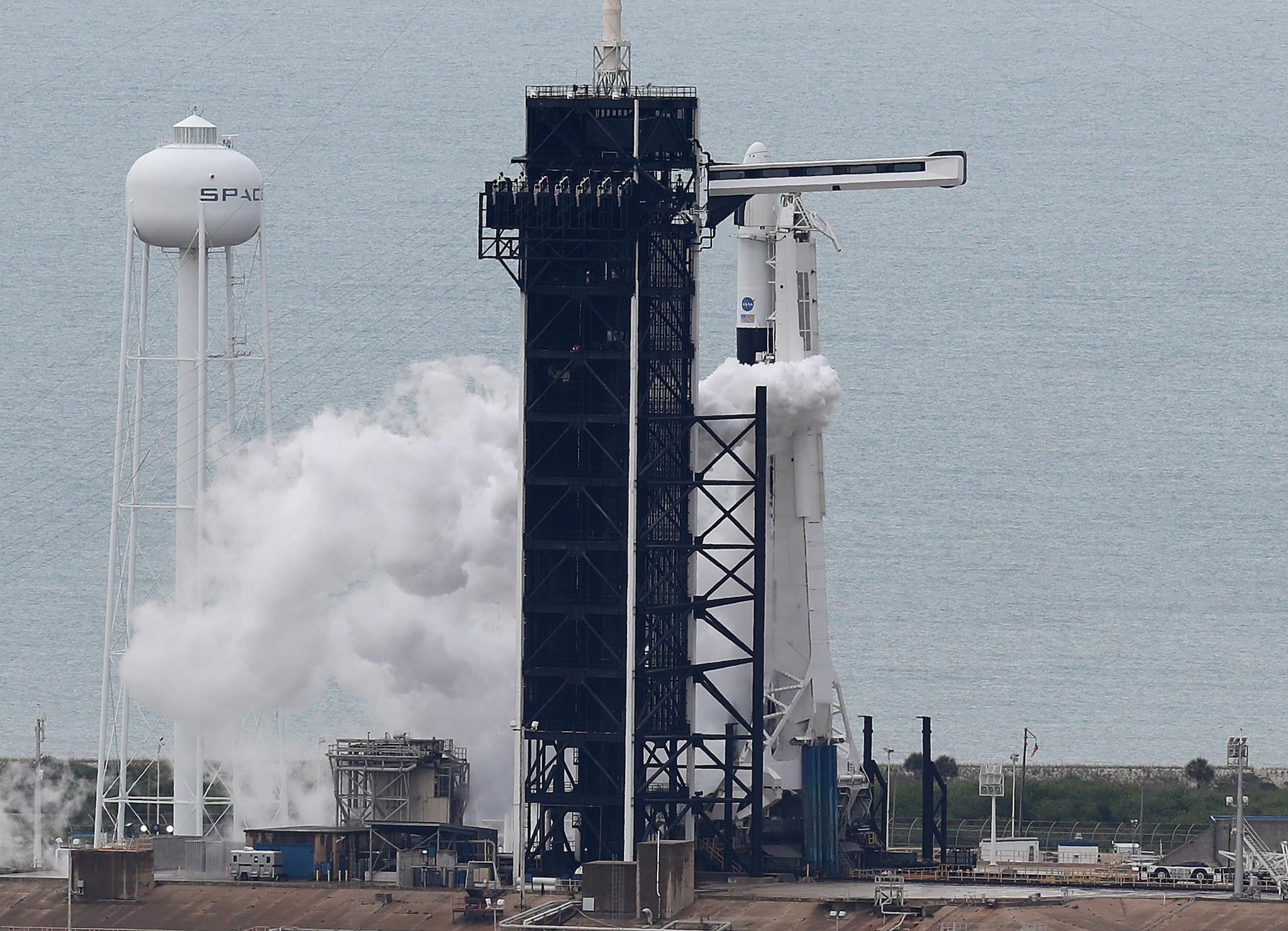SpaceX launch cancelled minutes before lift-off due to bad weather

Your support helps us to tell the story
From reproductive rights to climate change to Big Tech, The Independent is on the ground when the story is developing. Whether it's investigating the financials of Elon Musk's pro-Trump PAC or producing our latest documentary, 'The A Word', which shines a light on the American women fighting for reproductive rights, we know how important it is to parse out the facts from the messaging.
At such a critical moment in US history, we need reporters on the ground. Your donation allows us to keep sending journalists to speak to both sides of the story.
The Independent is trusted by Americans across the entire political spectrum. And unlike many other quality news outlets, we choose not to lock Americans out of our reporting and analysis with paywalls. We believe quality journalism should be available to everyone, paid for by those who can afford it.
Your support makes all the difference.SpaceX has been forced to cancel its latest launch due to adverse weather conditions.
The private space firm scrubbed the lift off of its Falcon 9 rocket just minutes before its scheduled launch time, as rain clouds passed over the Kennedy Space Center in Cape Canaveral, Florida.
The launch was already delayed, having previously been scheduled for 26 June. A new launch time is yet to be confirmed.
"Standing down from today’s mission due to weather; proceeding through the countdown until T-1 minute for data collection," the firm tweeted. "Will announce a new target launch date once confirmed on the Range."
The mission was set to deliver a batch of 57 Starlink satellites into orbit as part of SpaceX CEO Elon Musk's plan to beam high-speed internet down to Earth.
More than 500 Starlink satellites are already in orbit, with hopes that they will eventually form part of a 12,000-strong constellation.
SpaceX is yet to announce a precise date for when the service will go live but it is already requesting beta testers in Canada and northern parts of the US.
The space-based internet service has already been successfully used by Mr Musk, who used it to send out a tweet in late 2019.
Join our commenting forum
Join thought-provoking conversations, follow other Independent readers and see their replies
Comments